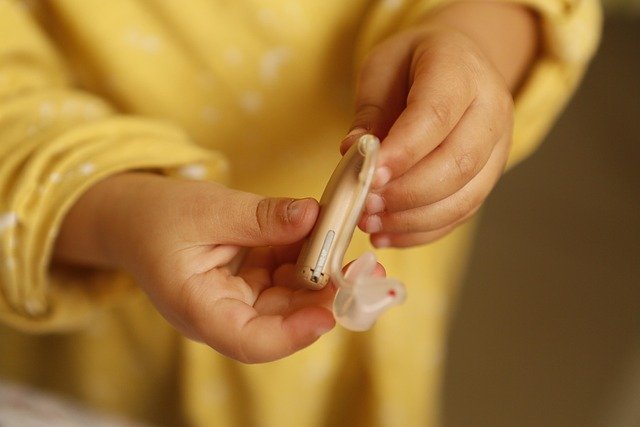Dental Implants: The Next Generation of Tooth Restoration
Explore how dental implants are changing restorative dentistry by providing long-lasting, natural-feeling tooth replacements that preserve jawbone health and oral function. Learn who qualifies, what the implant process involves, modern technological advances, and typical costs to help you decide if implants are the right solution for restoring your smile.

Dental implants have become a leading option for replacing missing teeth because they closely mimic natural tooth structure and function. Unlike removable dentures or traditional bridges, implants are anchored in the jawbone and provide a stable, long-term solution. Below is an accessible overview of what implants are, who benefits most, the step-by-step treatment process, cost considerations, and the latest advancements in implant dentistry.
Key components of a dental implant
A completed implant restoration is made up of three primary parts:
- The implant: a small biocompatible titanium (or in some cases zirconia) post surgically placed into the jawbone. This acts as an artificial tooth root.
- The abutment: a connector that fastens to the implant and supports the visible restoration.
- The crown: a custom-fabricated artificial tooth designed to match your surrounding dentition in color, shape, and function.
Each component plays a distinct role: the implant provides stability, the abutment creates the link, and the crown restores chewing, speech, and aesthetics.
Who typically makes a good candidate?
Dental implants are suitable for many people with missing teeth, but candidacy depends on several factors:
- Healthy gum tissue without active periodontal disease
- Adequate jawbone volume and density to support an implant
- General good health, since conditions like uncontrolled diabetes or immune issues can affect healing
- A willingness to maintain excellent oral hygiene and attend regular dental check-ups
Your dentist or oral surgeon will perform a clinical exam and imaging studies to evaluate your mouth, review your medical history, and discuss habits such as smoking that can influence success.
Benefits compared with other tooth-replacement options
Implants offer several important advantages over dentures and bridges:
- Natural look and function: Restorations attached to implants behave and feel more like real teeth, enabling a wider range of foods and more confident speech and smiling.
- Longevity: With proper care, implants can last for decades or even a lifetime, whereas dentures and bridges often require replacement every several years.
- Preservation of bone: Implants stimulate the jawbone, helping to prevent the bone loss that frequently follows tooth loss.
- Protects nearby teeth: Unlike traditional bridges, implants do not require modification of adjacent healthy teeth for support.
- Easier hygiene: Individual implant crowns can be cleaned similarly to natural teeth, reducing trapped food and plaque compared to removable prostheses.
What to expect during the implant process
Although treatment timelines vary, the typical course includes:
- Consultation and planning: A comprehensive exam, X-rays or CBCT scans, and a personalized treatment plan are developed.
- Surgical placement: Under local anesthesia (and sedation if needed), the implant is positioned into the jawbone.
- Healing and osseointegration: Over several months—commonly 3 to 6 months—the bone grows around the implant, securing it in place.
- Abutment placement: After the implant has integrated, the abutment is attached to allow for the final restoration.
- Crown fabrication and placement: A custom crown is made to match your bite and appearance, then secured to the abutment.
Some cases allow for immediate provisional crowns, but many patients follow the traditional staged approach to ensure predictable healing and long-term success.
Typical cost ranges
| Procedure | Average Cost Range (USD) | Notes |
|---|---|---|
| Single Implant | $3,000 - $4,500 | Includes implant, abutment, and crown |
| Full Mouth Implants | $20,000 - $45,000 | Varies based on number of implants and type of restoration |
| All-on-4 Implants | $15,000 - $30,000 | Per arch (upper or lower) |
Prices, rates, or cost estimates mentioned in this article are based on the latest available information but may change over time. Independent research is advised before making financial decisions.
Costs depend on geographic location, complexity, need for bone grafting or sinus lifts, materials chosen, and the provider’s experience. Many dental offices offer financing plans, and some insurance policies provide partial implant coverage.
Recent innovations in implant dentistry
The field continues to advance with techniques and materials that enhance precision, comfort, and outcomes:
- Computer-guided implant placement: Digital planning and surgical guides increase accuracy and can reduce invasiveness.
- Immediate load implants: In selected cases, temporary crowns are placed the same day as implant surgery to shorten treatment time.
- Zirconia implants: Metal-free alternatives for patients with metal sensitivities or aesthetic concerns.
- Screwless designs and improved abutment systems: These developments aim to reduce mechanical complications and improve the crown-to-implant connection.
As research progresses, we can expect further refinements in implant surfaces, prosthetic materials, and protocols that improve success rates and patient experience.
Is an implant right for you?
Dental implants provide a durable, natural-feeling solution for many people who have lost one or more teeth. They preserve bone, protect adjacent teeth, and often prove cost-effective over the long term. However, suitability depends on individual oral and medical factors, and the process requires an investment of time and commitment to oral care.
Discuss your goals, concerns, and medical history with a qualified dental professional to determine the best treatment pathway. Many practices will present multiple restorative options and explain expected outcomes and financing alternatives.
This article is for informational purposes only and should not be considered medical advice. Please consult a qualified healthcare professional for personalized guidance and treatment.






